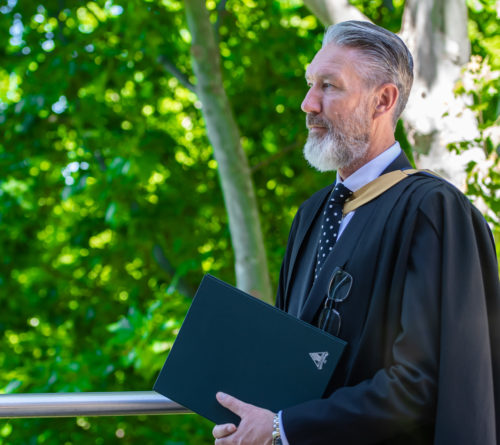From the Deputy Head Master – Summer Hill
I was sent a podcast late last week that piqued my interest because it introduced me to a term I hadn’t heard before; ‘JOMO’, which is an acronym that stands for the ‘Joy of Missing Out’. It was an interview with well-known and well-regarded child and adolescent psychologist, Dr Andrew Fuller[1] and the crux of his thesis is what he perceives as an opt out culture developing amongst young people as our society continues to recalibrate after the vicissitudes of the last two years. He expresses this concern in a very interesting way, by opining that he is observing a trend amongst young people that there is a growing belief that everything is optional. He goes on to link this attitude with what he believes is a heightened sense of anxiety in young people because they have become unused to doing things they find difficult or disagreeable.
He reports anecdotes of young people avoiding school, not wanting to participate in sport and camps, and seeking to avoid many of the important rituals and activities of childhood and adolescence. And he makes a call for schools and parents to encourage boldness and courage, and a sense of adventure in our post-pandemic world. That it is important to do everything we can so that our young people are not frightened or anxious about the things we used to take for granted as part of a normal upbringing; the skinned knees, the homesickness, the disappointments and the failures that help shape our sons and daughters into the resilient, self-sufficient, independent, and well-rounded people we hope they will become.
At Trinity, we actively work against this misplaced idea that ‘JOMO’ is something to aspire to, and that the individualism that, at least to some extent, sits behind this idea is not something we are interested in encouraging. This is one of the reasons we make so much of your son’s experience at Trinity mandatory, to forge the sense of community we believe is the antidote to individualism, and to provide opportunities to show (and grow) boldness and confidence in our young people. This explains why two of the key aspects of the School’s ethos are breadth and challenge. We believe that both play an important role in developing the resilience and character we value so highly. After all, it would be surprising if any parent would say that resilience is a characteristic they would not want to inculcate in their children.
I have written in the past that it is important that we do not pathologise the worried well (the root of Dr Fuller’s JOMO, perhaps?); that the starting point for us is that it is both predictable and natural that as human beings we experience a full range of feelings. Of course, there will be times when we (and your sons) don’t want to engage but, as adults, we have the life experience to know that life comes in seasons, and we ought not be surprised that there are times when we are sad or unhappy or anxious. Life is not always simple, and no-one can be happy all the time because we are powerless to make the world conform to our desires. And that is a very good thing, because that is how we learn to cope, to be bold and courageous. Just as steel is tempered by fire, we are made stronger by the challenges we overcome. How we learn to cope with the vicissitudes of life; the unfairness, the disappointment, the tragedy, and the frustration is important, because the alternative is just to give up.
At Trinity, we are committed to helping you help your sons to grow to become resilient, empathetic men, and the measure of your parenting, and our education and support, is not likely to be seen for some years, and probably not until they are husbands, partners and fathers themselves. For that reason, we talk frequently with him about resilience and help-seeking, qualities that are not only important, but also essential, and that we become stronger and more able to cope if we avoid catastrophising difficult or unpleasant events into insurmountable obstacles[2]. The Head Master has often remarked to your sons that “if you can’t get out of it, you might as well get into it”. Dr Fuller and I couldn’t agree more.
[1]https://podcast.iseducation.com.au/s2-ep8-getting-kids-to-opt-back-into-life-and-helping-them-stay-safe-online/
[2] An important caveat – It is important to note that, notwithstanding the School’s deliberate intention to encourage resilience, mental illness is as real as any diagnoseable physical illness, is treatable, and must be taken seriously.
Bradley Barr | Deputy Head Master – Summer Hill
















